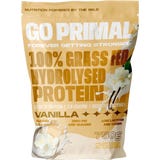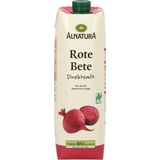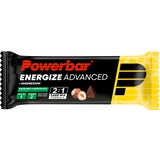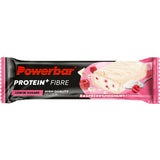Perfect Food for the Brain
Are you often in a bad mood? Do you have problems with concentration or are you tired quickly from mental exertion? Then maybe you should change your diet. Eat right, think easier.
The Brain - Simply Remarkable
The brain is fascinating. Did you know that it is only 2% of our total body mass but consumes 20-25% of our energy and oxygen? It is home to more than 100 billion nerve cells, each of which is individually connected with countless others and communicates with them. The brain is so important that nutrient deficiency in the brain impacts all the other organs. As soon as nutrient deficiency in the brain is recognized by the body, it begins to pull nutrients away from other organs. Nevertheless it does not take very much effort to ensure a minimum supply of nutrients.
The Great Influence of the Diet
It makes a huge difference what you eat and which materials are available to your brain. Diet affects a lot more areas than most know.
First, if you eat a lot of fast food or sweets, you will naturally feel sluggish. What we eat impacts:
-
our mood: your general mood depends on what you eat.
-
our ability to concentrate: if you don't get enough healthy micronutrients, your ability to concentrate suffers greatly.
-
our performance: the brain controls the body. If it can't work properly, physical and mental performance decrease.
-
fatigue: the brain is tired more quickly if it is not supplied with the right nutrients.
-
blood flow to the brain, the brain metabolism, and nervousness are all impacted by nutrition
What is Good for the Brain?
Here you can roughly summarize all the nutrients the brain needs to function. These include:
-
Vitamins: in particular vitamins A, C and E are important for optimal performance. Eat fruit, vegetables and nuts regularly for an optimal supply.
-
Carbohydrates: are stored by the body in the form of glycogen (glucose) and provide quick energy for the brain and muscles. Of particular importance are complex carbohydrates because they provide for long term energy supply. They are found in whole grains, potatoes, and partly also in vegetables. Normal sugar or white flour give the brain a performance boost only short term.
-
Phytonutrients & Omega-3 fatty acids: these substances protect the brain from aging and maintain its performance. Phytonutrients are found in all fruits and vegetables. Omega-3 fatty acids are contained in fatty fish like salmon and herring and in some oils (especially linseed oil).
-
In addition to these nutrients an adequate supply of minerals, trace elements, proteins and fats is also important. The easiest way to achieve this by a varied and healthy diet, avoiding processed foods.
-
Liquids are often forgotten. It is necessary that you drink enough liquid, if you are dehydrated brain and body performance decreases.
How Does the Brain Remain Healthy?
Avoid risk factors to keep your brain healthy into old age. These include high blood pressure, obesity, diabetes and lack of exercise. Protect yourself from oxidative stress with the help of phytochemicals, vitamins etc.
The Best Foods for Your Brain
Here is a list of foods that provide the brain with what it needs, so it can perform to its best.
- Apples
- Avocados
- Berries (all kinds: blueberries, strawberries, blackberries etc.)
- Pears
- Broccoli
- Prunes
- Fish
- Garlic
- Nuts
- Raisins
- Spinach
- Whole grain products
- Water
Latest reviews
-
 1.5 (2)
1.5 (2)GoPrimal Hydro Whey Protein, Pure Vanilla (750 g)
-10%- Whey from free-range cows
- High BCAA content (6.86 g per serving)
- Low fat and carbohydrate content
€ 40,41 € 44,99 (€ 53,88 / kg)Delivery by February 05
-
 € 2,24 € 2,49 (€ 2,24 / l)
€ 2,24 € 2,49 (€ 2,24 / l)Delivery by February 11
-
 4.0 (4)
4.0 (4)Powerbar Energize Advanced, Hazelnut Chocolate (55 g)
-20%- Juicy & guaranteed not sticky
- With sodium & magnesium
- 2:1 carbohydrate ratio (glucose & fructose)
€ 2,23 € 2,79 (€ 40,55 / kg)Delivery by February 05
-
 3.5 (4)
3.5 (4)Powerbar Protein Plus Fibre, Raspberry Yoghurt (35 g)
-10%- Protein-rich snack
- Low in sugar
- Practical for on the go
€ 1,43 € 1,59 (€ 40,86 / kg)Not available at the moment
